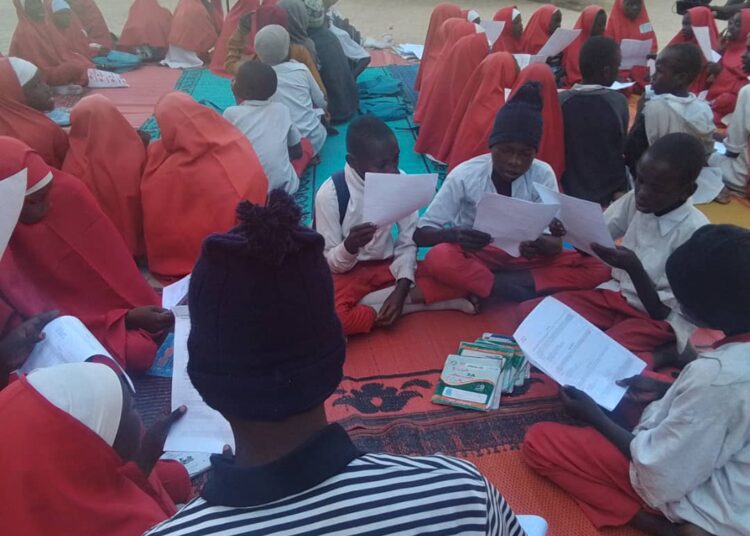The United Nations Children’s Emergency Fund (UNICEF) has provided essential learning skills to 285,000 beneficiaries in Borno and Yobe states.
The initiative is thanks to funding from the Partnership for Learning for All in Nigeria project by the Foreign, Commonwealth, and Development Office, in collaboration with Education Cannot Wait.
The beneficiaries include 270,500 children aged 6 to 17 years, comprising 45% boys and 55% girls, along with 7,200 educators and facilitators, 1,035 government officials, and 2,235 school and center-based management committee members.
Speaking to journalist during a field mission to UNICEF-supported schools in Jere and Maiduguri metropolis to commemorate International Education Day, Mr. Ian Attfield, the Senior Education Adviser at the British High Commission, said that the four-year programme aims to enhance access to safe, inclusive, and high-quality learning, particularly focusing on children affected by conflict, especially girls and those with disabilities.
Attfield noted that the Partnership for Learning for All in Nigeria, an Education Emergency Program (PLANE-EIE), is a four-year £16 million grant initiative initiated in December 2021, expected to conclude in December 2025.
He added that it is being implemented in Borno and Yobe states, with UNICEF as the consortium lead alongside Plan International as a consortium partner.
The implementation areas include Maiduguri, Jere, and Konduga local government areas in Borno State, as well as Damaturu, Nguru, and Potiskum local government areas in Yobe State.
“The programme is in its third year of implementation, contributing significantly to the education sector’s recovery in conflict affected areas. This initiative underscores a comprehensive approach to addressing the educational challenges posed by conflict, specifically emphasising inclusivity and quality learning for vulnerable children,” Mr Attfield said
UNICEF Education Officer in Maiduguri, Mustapha Shehu, said that the funders visited schools to inspect their investments, adding that Plan International supported teachers’ training in various ways.
Shehu explained that Plan International supported 140 schools, provided them with learning materials, and conducted training for teachers on Kanuri arithmetic and reading intervention.
“Teachers received Teaching at the Right Time training, were trained on components such as psychosocial support, safe school declaration, and operationalization.
“The schools were also equipped with wash facilities, including boreholes. The team from FCDO is here for the annual review and assessment of interests with partners to see the teaching and learning and what they have invested in Borno State,” said Shehu.











